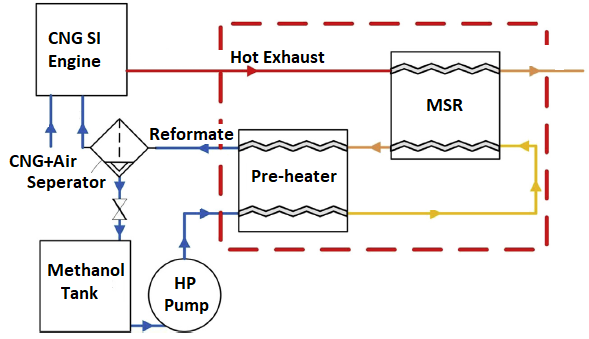PI Name & Affiliation:
Dr. E. Porpatham
Professor, Automotive
Automotive Research Centre (ARC)
Vellore Institute of Technology, India
Co-PI Name & Affiliation:
Dr. A. Senthil Kumar
Professor
Co2, Research and Green Technologies Centre
Dr. K. K. Cheralathan,
Associate Professor
School of Advanced Sciences (SAS)
Dr. G. Nataraj,
Assistant Professor
School of Mechanical Engineering (SMEC)
Funding Agency: DST-SERB
Scheme: Core Research Grant (CRG)
Overlay: Rs. 34,69,469
Duration of the Project: 3 Years

Dr. E. Porpatham

Dr. A. Senthil Kumar

Dr. K. K. Cheralathan

Dr. G. Nataraj

Project Description
An increase in automotive exhaust emission and fuel prices has driven the nations to impose stringent emission norms for automotive engines. Therefore, there is a need for improved engine technology, which addresses the need to increase thermal efficiency and as well as to reduce emissions. A new concept of engines using CNG with hydrogen called multi-fuel engines, primarily gaseous in nature, is gaining importance in the automotive industry. Hydrogen results in an increased burning velocity and wider flammability limits. But onboard carrying of high-pressure hydrogen cylinder leads to more safety concerns and risks. Also, about 30% of the fuel energy is wasted in an internal combustion engine along with the hot exhaust gas. The proposed method intends to develop an onboard hydrogen generation system from methanol utilizing the engine exhaust Waste Heat Recovery (WHR) system. The generated hydrogen can be used as a secondary fuel for enhancing the combustion to improve the performance and reduce the emissions on a CNG fuelled automotive SI engine. Applying the right mix of technologies for efficient production of biogas, increasing the specific power output, thermal conversion efficiency, and reduced emissions of engines can be realized.